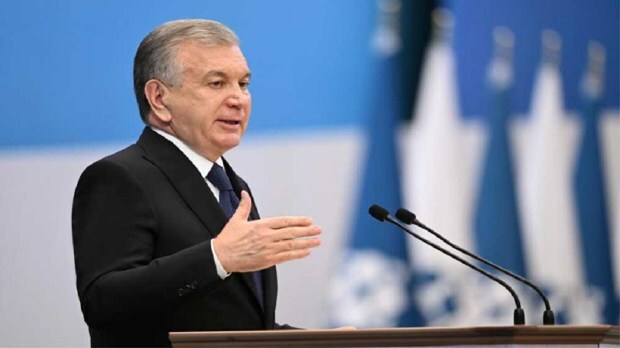Uzbekistan marches towards a steady democracy, economic stability with President Shavkat Mirziyoyev
Uzbekistan’s President Shavkat Mirziyoyev was re-elected on Sunday, the country’s Central Election Commission (CEC) announced. The CEC declared 15 million voters’ participation in Sunday’s elections, addressing the global media, and observers in the historic city of Tashkent.

Incumbent President Shavkat Mirziyoyev had called the snap election on May 8, one week after Uzbek voters overwhelmingly approved the constitutional reforms. Mirziyoyev still has three and a half years remaining in his second term from the 2021 presidential election.
Uzbekistan takes the lead in the alternative narrative that quality governance, stability and reforms matter. A path towards democracy is a consistence effort that must not be hurried into. The evolving election process and transparency with international observers are the stringent ones which Uzbekistan attempts to follow.
When Mirziyoyev succeeded long-time President Islam Karimov, who ruled the country from its independence in 1991 until his death in 2016, he embarked on a reform agenda upon taking office, easing the Karimov government’s harsh censorship policies.
Dats speaks for that Uzbekistan’s economy grew by 5.7% year-on-year in 2022, as per the official figures. In fact, the country showed steady growth across key economic indicators with Industrial production expanding by 5.2% in the country last year, while services grew by 15.9% and construction rose to 6.6%.
Industrial production expanded 5.2% in the country last year, while services grew 15.9% and construction rose 6.6%, as they were followed by agriculture-forestry-fishery by 3.6%, freight transportation by 0.5%, and passenger transportation by 5%.
While Uzbekistan is one of the world’s largest natural gas producers — 54.5 million tonnes of oil equivalent (Mtoe) in 2019—the government has embarked on a highly ambitious energy -mix, diversifying into renewable energy.
The 2023 snap elections looked at such changes and economic stability since Mirziyoyev took office in opening Uzbekistan’s political system—step by step.
Election process
Uzbekistan is a presidential republic in which power is nominally shared between the president and the Oliy Majlis – the Parliament.
Four political parties out of the five registered parties formally nominated candidates by the legislative deadline to run in the election.
The nominated candidates were chosen by the parties, which include: Abdushukur Khamzaev, Ecological Party of Robakhon Makhmudova, Social Democratic Party Adolat (Justice); Shavkat Mirziyoyev (incumbent Uzbekistan Liberal Democratic Party; and Ulugbek Inoyatov, People’s Democratic Party.
Interestingly, Uzbekistan has constitutionally mandated campaign expenditure and donation limits. Presidential campaigns are entirely publicly funded, and private donations are prohibited.
“That indeed goes with lesser corruption, and saves the national treasury, as we see in many countries in Asia, the funding goes unchecked, leading to rampant corruption and money laundering, explains, Mahfuza, a female research student from a leading university, as she braved the sweltering heat to cast her vote in a polling station in the suburb of Taskent.
Ahead of each election, the Central Election Commission (CEC) works with the Ministry of Finance to develop a cost estimate for the election, and funds are then allocated from the national budget for election expenses. Each nominating party receives an equal amount of money to cover campaign-related expenses on behalf of its candidate and must submit two campaign finance reports to the CEC during the election period.
In fact, the total expenditure cost is also benchmarked which is $1,697,258 for election expenses, and each candidate’s campaign will be allocated $ 424,336.
While all such measures call for a fair election, the key aspect must be highlighted which is that Uzbekistan’s Election Code requires the regional Election Commissions to implement measures to ensure the accessibility of polling stations by voters with disabilities. More so, if the sick and old can come to the polling station, the polling station will go to their homes so they can be left out of the historic democratic process.
Why are these elections important?
Voters in Uzbekistan voted in favour of a constitutional referendum in April 2023 for the changes which declares the Central Asian country as a secular social state.
Through nationwide elections and referendums, Mirziyoyev attempted to improve legal gender equality protections which is largely seen by the observers as progressive reformist steps.
In fact, some of the notable initiatives include the voting rights of prisoners and expanded land ownership rights.
“Uzbeks know that political stability is the key to national economic growth,” sums up the essence of the presidential election, Uzbek ambassador to India, Dilshod Akhatov who studied world economy and international politics at one of the leading academies of Uzbekistan.
